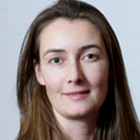
CNCR researchers collaborated on a ground breaking study, revealing genetic similarity between different mental disorders.
The study is the first to demonstrate such a link. It was published online in Nature Genetics on August 11, 2013.
CNCR researchers collaborated on a ground breaking study, revealing genetic similarity between different mental disorders.
The study is the first to demonstrate such a link. It was published online in Nature Genetics on August 11, 2013. The Psychiatric Genomics Consortium conducted the study. This worldwide consortium consists of more than 300 medical researchers in more than 250 institutions.
Psychiatric disorders are more similar than expected
The researchers investigated the genetic information of more than 75,000 people, including patients with mental disorders such as depression, schizophrenia, bipolar disorder as well as healthy controls. As expected, similar genetic variants in patients with the same disorder were found. More interesting, the scientist also found genetic similarities between patients with different mental disorders.
“At the genetic level, different mental disorders are more similar than we would expect. This suggests that psychiatric disorders could lie along a spectrum, possibly resulting from shared risk factors. This may also have implications for treatment, in the sense that certain treatments working well for one mental disorder may also work well for another mental disorder‚, said Professor Danielle Posthuma of the CNCR.
Improving treatment
“Mental disorders constitute 13% of the global burden of disease. The Netherlands is no exception with an estimated lifetime prevalence of 41%. They cause an enormous burden not only to society but also to the patient and his or her family. The causes of mental disorders are largely unknown and generally believed to be of complex nature‚, said Posthuma. Complex traits are influenced by thousands of risk factors, each of small effect. “Thanks to large scale efforts, such as the Psychiatric Genomics Consortium, we are now starting to identify these risk factors, which is prerequisite to developing novel treatments.‚
Genetic Cluster Computer
The study involved an impressive amount of data and required an enormous amount of computing power. This was facilitated by the Dutch Genetic Cluster Computer, directed by Posthuma and supported by SURFsara, the VU and the Netherlands Organisation for Scientific Studies (NWO).